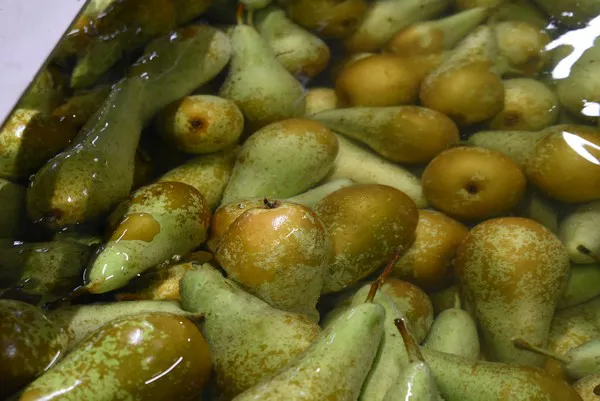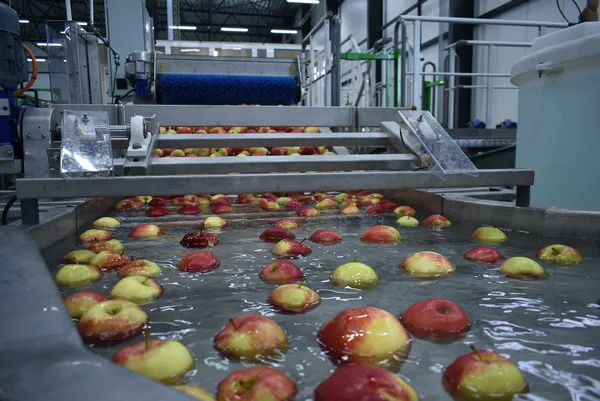With last week's harvest estimate on Prognosfruit, it is safe to say that the new European top fruit season is now back in full swing. In Belgium, lower volumes are expected in both pears and apples, which brings additional responsibilities to market this fruit well for growers, according to Laurent De Smedt of BelOrta. "We have good fruit in the orchards now. There is a lot of potential," explains the cooperative's divisional head of top fruit. "We have to bet on higher consumption of apples and pears."

For BelOrta and its growers, picking of the new Conference crop for long storage will start on Monday. "That's a week earlier than last year, but actually the pears look better than last season," Laurent continues. "There has of course been a bit more hail damage this growing season, but that certainly shouldn't be a problem for Conference. We cannot complain about the skin quality in general, and the size is also a bit better than last year, so we foresee a very nice product."
Therefore, the specialist certainly does not see the fact that there is a smaller pear harvest in Belgium compared to last year, but instead a slight increase can be seen Europe-wide, as a problem. "Across Europe, there is indeed a slight increase of five per cent, but in kilos this can still not be called a big harvest. It is the third-smallest harvest in the last 10 years, so I think there will definitely not be any oversupply. If we look at the distribution of summer and winter varieties, we do see that there are some more summer pears, which may still give some pressure from the summer varieties in September/October. However, Conference is an export pear, which by default starts to dominate the market in volume from late October/November. At that point, therefore, the market should be balanced."
Earlier reports of remaining stocks of old crop do not worry Laurent much either. "I heard about that, and maybe there are some pears left here and there, but we have had a nice sales season, actually placing the planned volumes in May. The new crop will not be hampered by this from the second half of September, I expect." However, the cooperative, like other pear stakeholders, is always looking for new markets. "Conference is a volume pear, which also needs new markets. Recently, it was 10 years since Russia imposed a ban on our Conference and alternatives need to be sought. We are still doing that. We see the demand from third countries continuing to grow every year, and this year too we will again look at markets like Asia or South America."

Increased apple prices
He additionally sees potential for a nice Belgian apple season, despite sharply lower volumes. "In Belgium, we have 34 per cent fewer apples than last year. This is a combination of the acreage being greatly reduced in recent years and a slightly smaller crop of Jonagold, and other standard varieties, for next season. We also see that the whole of Europe will have about 11 per cent fewer apples, so we still see definite potential with increased prices compared to other years. Moreover, the industrial market is also in demand, so we expect a firm bottom in the market. So although there are fewer kilos, overall we have a good product, with which we can certainly win over the consumer.
The decrease in apple acreage is a result of supply and demand in the market, we hope to have reached the bottom here now. We do see more of our club varieties being planted in recent years. These are placed in the market in a structured way, making them less subject to the fluctuations that a Jonagold does experience. We also expect a better season in price for Jonagold growers this year. There is less pressure from abroad, such as Poland, and Germany also has a smaller production of the Red Prince, so opportunities do exist. All in all, there is plenty of room next season for both our pears, and apples."
For more information:
Laurent De Smedt![]()
BelOrta
Mechelsesteenweg 120
2860 Sint-Katelijne-Waver, Belgium
+32(0)12 670 260
[email protected]
www.belorta.be
